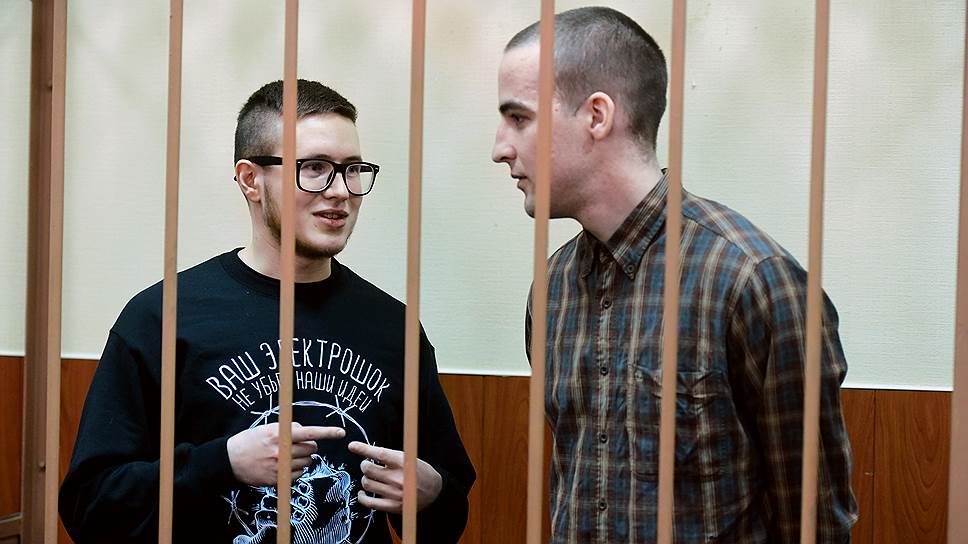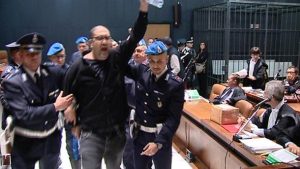via actforfree
At 9:30AM on Friday, April 12th, the trial in the Court of Appeals against Revolutionary Struggle will continue at the special courthouse in Korydallos Prison.
It is worth noting that the prosecutor, as well as condemning the actions and communiques of Revolutionary Struggle, admitted during his speech that the attack by the Revolutionary Struggle cell COMMANDO LAMBROS FOUNDAS against the Bank of Greece, could have led to the overthrow of the government and had negatively affected the economy, tourism and investment.
The goal of the Prosecutor’s Office is to ensure that the sentences do not change, including those of Nikos Maziotis and Pola Roupa who received life imprisonment for the explosive attack against the Bank of Greece in Athens that was carried out in response to the policies of 2 of the three Troika institutions- the ECB and the IMF. Revolutionary Struggle claimed responsibility for this action on April 10th, 2014. At the next trial (we will announce the date once it is known) the decision of the Court of Appeal will be delivered.
Solidarity with Revolutionary Struggle
 Network case defendants Viktor Filinkov and Yuli Boyarshinov in the cage at court on April16. Filinkov (left) wears a sweatshirt emblazoned with the slogan, “Your taser can’t kill our ideas.” Photo by Alexander Koryakov. Courtesy of Kommersant
Network case defendants Viktor Filinkov and Yuli Boyarshinov in the cage at court on April16. Filinkov (left) wears a sweatshirt emblazoned with the slogan, “Your taser can’t kill our ideas.” Photo by Alexander Koryakov. Courtesy of Kommersant June 11th: The international day of solidarity with Marius Mason and long-term anarchist prisoners. In the 15 years this tradition has been observed, June 11th has facilitated support and action inspired by imprisoned anarchists — from noise demonstrations outside of jails to letter-writing nights, from fundraisers to arson. Setting aside this day is one way of remembering anarchists who are serving long prison sentences, generating support for them, and inspiring solidarity actions.
June 11th: The international day of solidarity with Marius Mason and long-term anarchist prisoners. In the 15 years this tradition has been observed, June 11th has facilitated support and action inspired by imprisoned anarchists — from noise demonstrations outside of jails to letter-writing nights, from fundraisers to arson. Setting aside this day is one way of remembering anarchists who are serving long prison sentences, generating support for them, and inspiring solidarity actions.














